Karate for Men, Women and Teens
And the first kihon you learn is to take off your shoes. Easy right?
Where do you put them down? How?
Are you reminded of the sanctity of the place?
Of concern for the health of your dojo mates?
Of mental passage from one world into the next?
Of emotional preparation for a wholehearted effort?
...to name a few.
In karate, what you do is mostly always easy. Doing it right is the trick. Doing it right every time is the real trick. And doing that, while thinking of something else, is where the adventure begins.
In fact, we know fundamentals to be so important that the first karate you learn also teaches you how to learn karate. (And for that, we even have our own system.)
It's that simple. If it was easy, karate students wouldn't be so special.
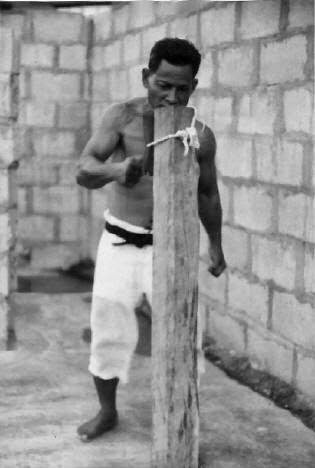
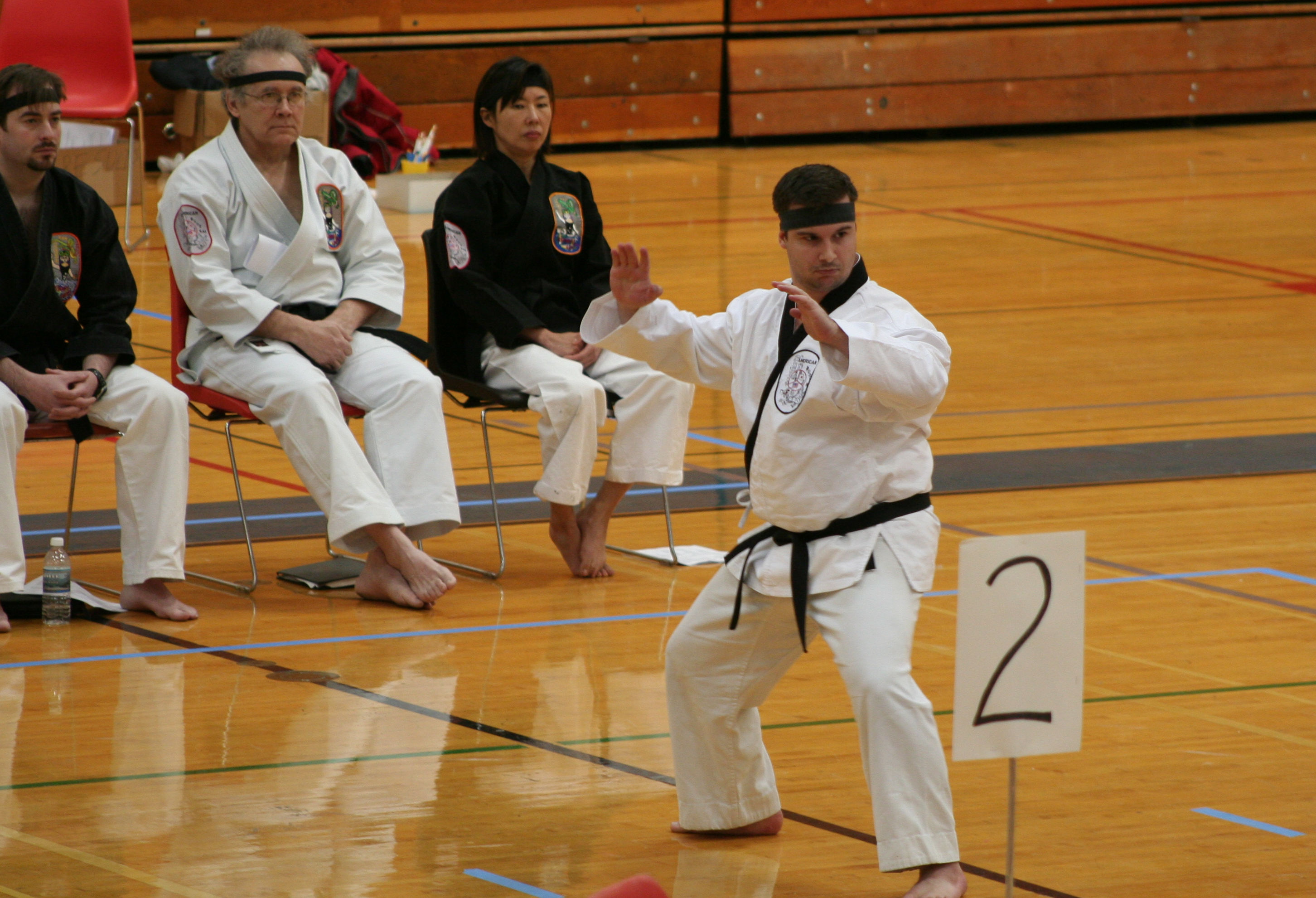
The next step, actually more of an evolution, is forms. Most people, by way of movies and TV, are familiar with seeing them. Kata serve many purposes. They are like a library of the various techniques in a karate style. They're a vehicle for practicing coordination, balance and concentration.
Uses for kata are only limited by your imagination. In fact, doing them can even be a form of relaxation.
This is where you come 'out of the dance' and combat begins to take center stage. Now, training with a partner, you take individual technique from kata and learn distance, timing and the dynamics of working against another person.
However, most importantly, in bunkai the attacks and counters are set so there are no potentially unfortunate surprises.
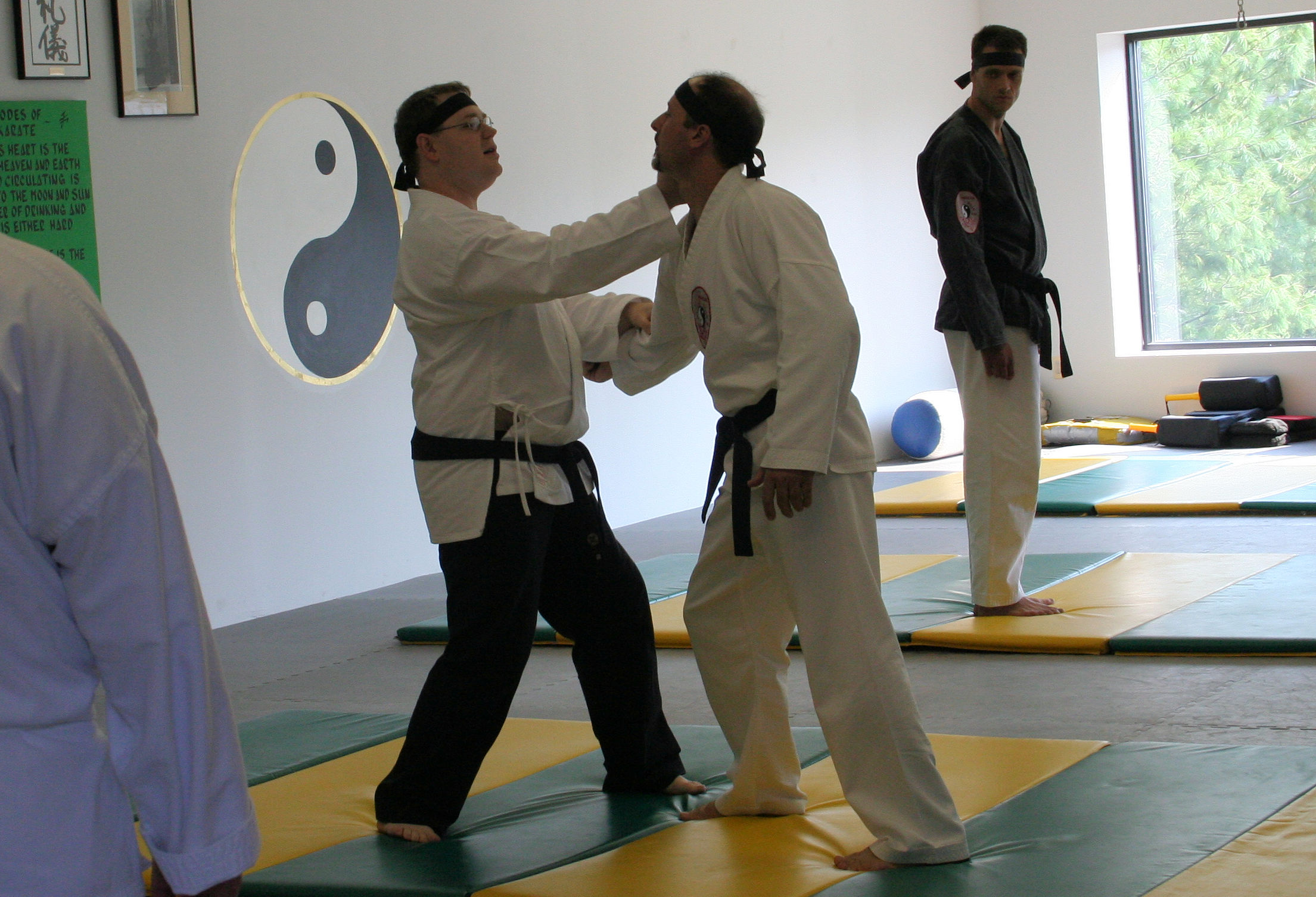
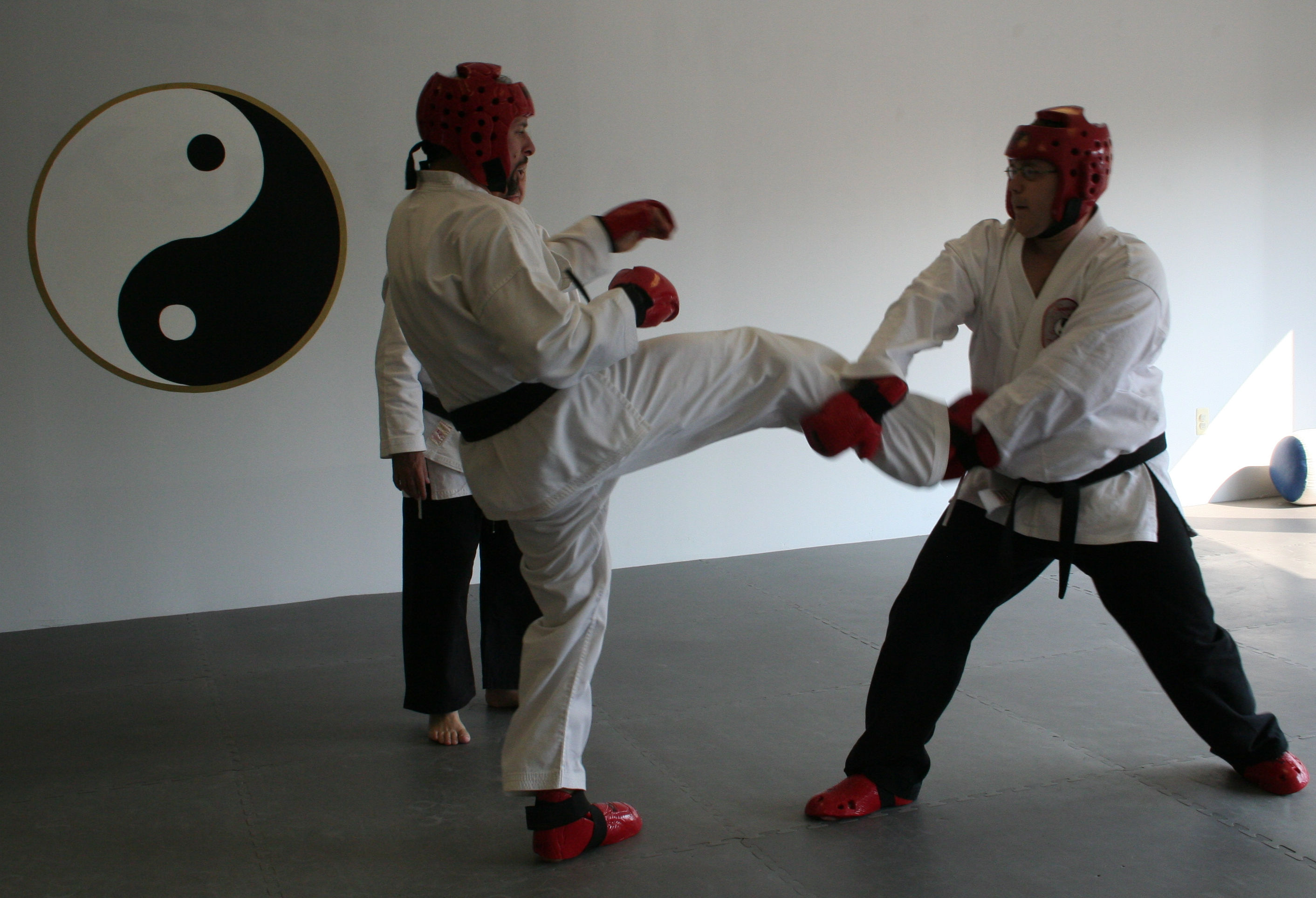
Ultimately, in physical terms at least, kumite is what martial art is all about: Combat self-defense.
The Martial Way, which we equally study, is about living peacefully.
Not everyone sees it like that.
In the dojo, we spar (not fight) with our partner (not opponent or enemy). You hurt enemies, you out-score opponents, but you value partners.
Technique is strictly controlled. No contact is allowed to the head. Only light contact to the body. We wear equipment only in case of accidents.
The characteristics of a weapon determine its use. Ancient weapons training can be effective - and relevant.
A bo and a broom handle work the same way. Know how to use an eku and things like shovels and rakes become dangerous on a whole new level. Yesterday's tuifa are today's police batons.
Weapons training isn't actually karate. On Okinawa, it's common to find empty-hand dojo that teach weapons as a supplemental study - and, in weapons dojo, it's the other way around.
This training rounds out a student. In one case the weapon is an extension of the self, in the other the self is an extension of the weapon. (Think samurai's relationship with his sword.)
In our dojo, weapons training extends beyond kata, following the same track as karate toward kumite.
Weapons are not toys. Children wielding weapons are not cute.
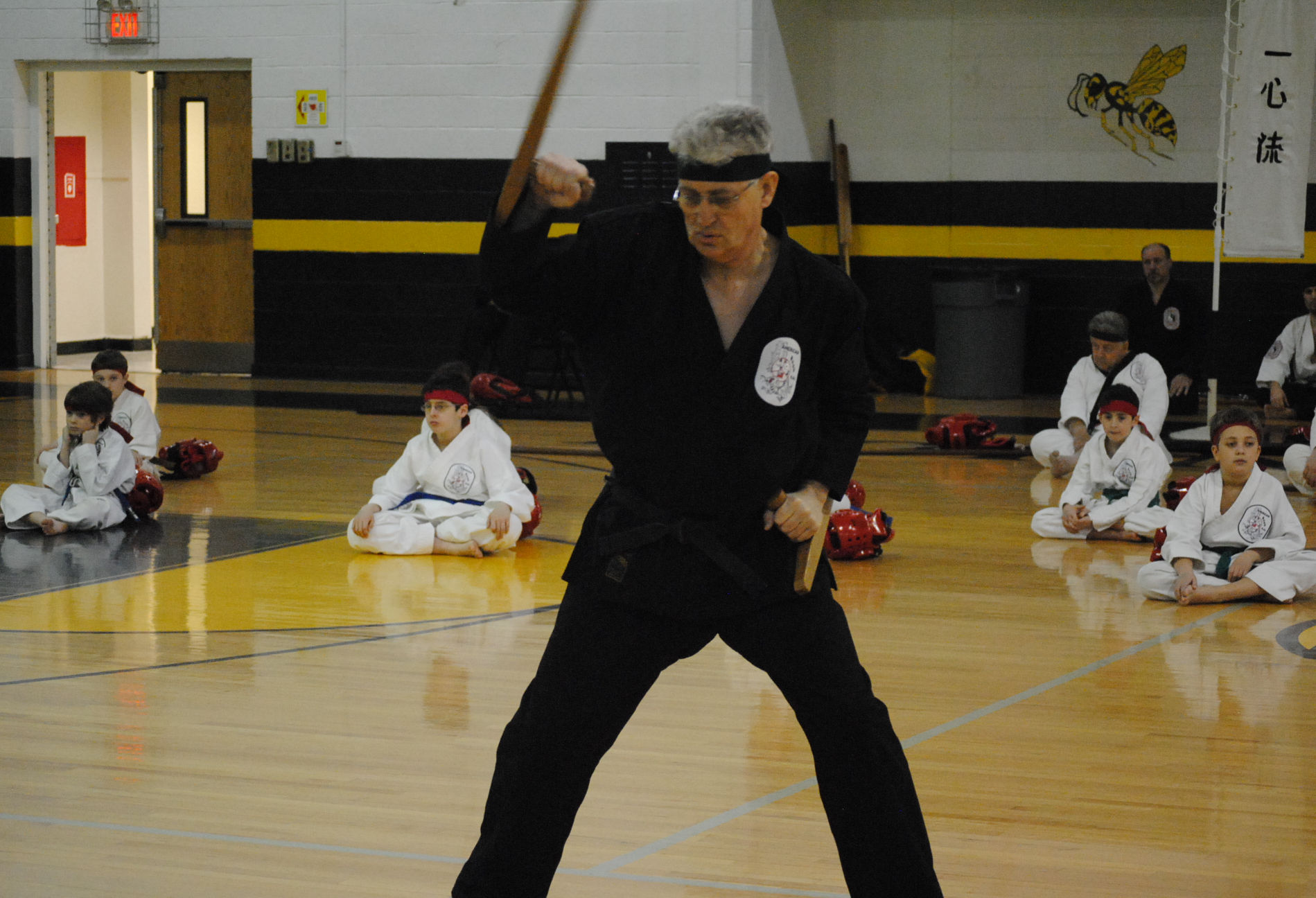
East Morris Karate Academy
14 West Street,East Hanover,
NJ 07936